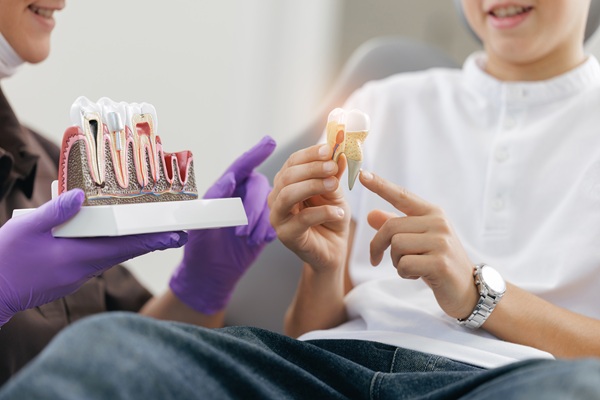Can I Prevent Tooth Wear?

Tooth wear refers to the gradual deterioration of the first layer of the tooth (the enamel). This can be due to events different from those responsible for dental decay or trauma. Tooth wear is affected by aging, and its prevalence is among people over the ages of 35 years. In every age range, males usually have a higher occurrence of tooth wear than females.
Three types of tooth wear
The level of tooth wear nowadays is remarkably higher than it used to be. This is because more people are now maintaining their natural teeth well into old age. Tooth wear is generally a result of three events: Attrition, erosion and abrasion.
1. Erosion
Erosion is the gradual loss of tooth material due to chemical or acid dissolution without any bacteria interference. Erosion of the enamel is typically due to excessive intake or inappropriate use of fruit juices with high acid content and carbonated drinks (including sparkling water). This habit is rampant among teenagers and young adults.
Erosion is also an issue with people who suffer from gastroesophageal reflux disease or specific eating disorders such as bulimia or anorexia. Additionally, the chances of erosion are higher in people with reduced or unstimulated production of saliva.
2. Attrition
Attrition is the gradual loss of the tooth enamel due to grinding or mastication of opposing teeth. The level of attrition depends on the extent of tooth usage. For instance, attrition will be higher in people who regularly clench or grind their teeth (also known as bruxism). It is also rampant among people who consume a diet high in fiber.
3. Abrasion
Abrasion is the gradual degradation of hard tooth substances resulting from mechanical activities aside from mastication or teeth grinding. Abrasion is usually linked with improper brushing methods, which can cause a chip at the point of the crown and tooth root. It is common in people who use their teeth for activities such as removing bottle crowns, cutting ropes or holding clips, nails or pins.
The continuous use of tongue jewelry can also cause tooth abrasion when the jewelry regularly hits against the teeth.
Preventing tooth wear
Minimizing the frequent intake of carbonated drink and juices with high amounts of acid is essential for preventing teeth erosion. You should desist from brushing the teeth immediately after taking acidic drinks and meals. Ideally wait about 20 minutes, because the acid softens enamel material and makes it susceptible to erosion while brushing.
Attrition progresses so slowly that most people only become aware of the condition when they visit the dentist. If bruxism is the case, the dentist may recommend wearing a mouth guard while sleeping.
Abrasion can be managed by practicing the right technique for brushing your teeth. Specifically, you should hold the toothbrush in a pen grip and avoid vigorous scrubbing. Also, you should avoid using your teeth as a tool for holding or gripping items and minimize the use of tongue jewelry.
Different kinds of toothpaste also have different levels of abrasion. Although abrasives are vital for removing tooth stains, they can also cause tooth wear. If you are worried about this, buy a less-abrasive fluoride toothpaste. Toothpaste with fluoride generally fortifies your teeth against wear by promoting the formation of calcium fluoride layer.
Request an appointment here: https://clarisseatakhaniandds.com or call Clarisse Atakhanian DDS Inc. at (818) 483-9071 for an appointment in our Glendale office.
Check out what others are saying about our services on Yelp: Read our Yelp reviews.
Recent Posts
Traditionally,dental restorations require an individual to have a physical impression of their mouth taken. Impressions are necessary to accurately create an indirect dental restoration, which are restoration made outside of the oral cavity and applied at a later time. Dental crowns, veneers, inlays and onlays are all examples of restorations that require impressions in order to…
Dental restoration procedures can be used to repair damaged teeth and restore their function. Many of these treatments also address aesthetic issues affecting the tooth. Teeth are one of the strongest parts of the body, but they also deal with many things that can damage them, like acids, bacteria and bite forces. Teeth can also…
If you damage one of your teeth, we encourage you to visit our office to see a dentist. We can help to restore a damaged tooth for a natural appearance. The functionality of your teeth is incredibly important. While we can improve the appearance of your tooth with a dental restoration, we will do so…
Need a restorative dentist? Do you have an awkward smile? Have you been told by friends and family that your teeth need some attention? If so, don't worry! Many dentists can help. One option is to see a dentist who offers restorative treaetments. This type of dentistry will provide the best options for restoring your…


